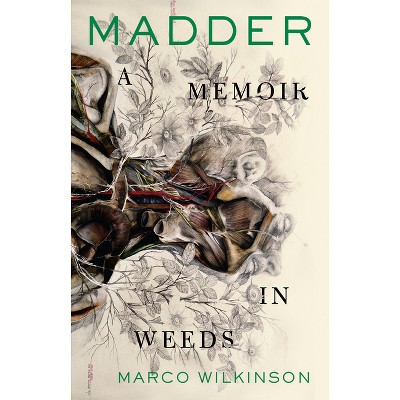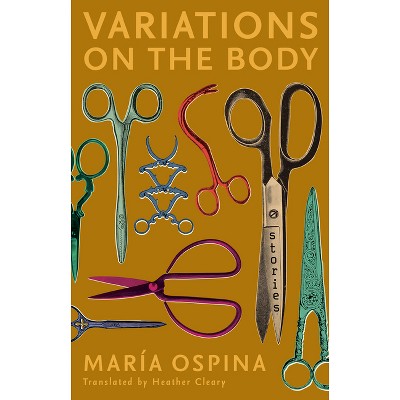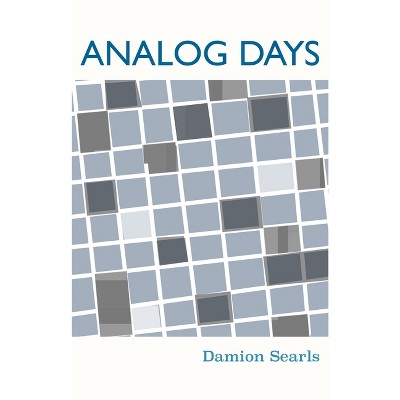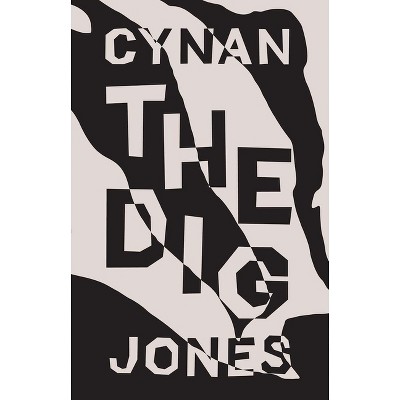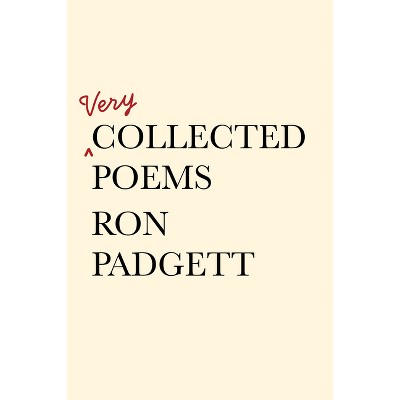Sponsored

Groundglass - by Kathryn Savage (Paperback)
$10.44Save $6.51 (38% off)
In Stock
Eligible for registries and wish lists
Sponsored
About this item
Highlights
- "Could there be something humbling and revolutionary in understanding myself as a site of contamination?
- About the Author: Kathryn Savage's writing has appeared in American Short Fiction, Ecotone Magazine, the Virginia Quarterly Review, BOMB, and the anthology Rewilding: Poems for the Environment.
- 240 Pages
- Biography + Autobiography, Personal Memoirs
Description
About the Book
"Groundglass takes shape atop a polluted aquifer in Minnesota, beside trains that haul fracked crude oil, as Kathryn Savage confronts the transgressions of US Superfund sites and brownfields against land, groundwater, neighborhoods, and people. Drawing on her own experiences growing up on the fence lines of industry and the parallel realities of raising a young son while grieving a father dying of a cancer with known environmental risk factors, Savage traces concentric rings of connection-between our bodies, one another, our communities, and our ecosystem. She explores the porous boundary between self and environment, and the ambiguous yet growing body of evidence linking toxins to disease. Equal parts mourning poem and manifesto for environmental justice, Groundglass reminds us that no living thing exists on its own"--Book Synopsis
"Could there be something humbling and revolutionary in understanding myself as a site of contamination?" Groundglass takes shape atop a polluted aquifer in Minnesota, beside trains that haul fracked crude oil, as Kathryn Savage confronts the transgressions of U.S. Superfund sites and brownfields against land, groundwater, neighborhoods, and people. Drawing on her own experiences growing up on the fence lines of industry and the parallel realities of raising a young son while grieving a father dying of a cancer with known environmental risk factors, Savage traces concentric rings of connection-between our bodies, one another, our communities, and our ecosystem. She explores the porous boundary between self and environment, and the ambiguous yet growing body of evidence linking toxins to disease. Equal parts mourning poem and manifesto for environmental justice, Groundglass reminds us that no living thing exists on its own.Review Quotes
Praise for Groundglass "Savage balances the personal with research so readers can feel both why she cares and why we should. This work is a worthy reflection." -Abby Manzella, The Star Tribune "From Superfund sites and brownfields to polluted waters and the local industrial yard of her childhood, Savage delivers her poetic dispatches from injured places." --Orion Magazine "Savage masterfully unites the personal and the political through lyrical flair and an inquisitive approach into environmental existentialism. . . . Savage's writing is both scholarly and accessible, resulting in a powerful and profound debut." --Evan Youngs, Rain Taxi Review of Books "Savage combines memoir with environmental and social commentary in her haunting debut. . . . A work of both elegiac beauty and horror. . . . This one's tough to forget." --Publishers Weekly "A lyrical exploration of grief and ecology. . . . Savage creates a compelling meditation that flows beyond the typical stylings of memoir, journalism, and theory. An interrogative, existential crisis at the center of an ongoing ecological one." --Kirkus "Reading Savage's writing is like taking a walk beside a friend with an extraordinary eye for all the unlikely and remarkable details along the path, the ones you would have missed if you had to walk it alone." --Kathryn Nuernberger "This probing book asks the hard questions in a compelling blend of memoir, essay, biography, and reportage. The inside is the outside now. The outside is inside." --Kazim Ali "Kathryn Savage roots down into one broken place--a place most would rather overlook--and listens. Groundglass is both a commitment and a grappling, and for that reason it will stay with me for a very long time." --Elizabeth Rush "Through exquisitely honed language and poetic imagery, Kathryn Savage skillfully juxtaposes her father's cancer with the ecological violence she witnessed at toxic Superfund sites, crafting an unflinching portrayal of 'the world as body.'" --Diane Wilson
About the Author
Kathryn Savage's writing has appeared in American Short Fiction, Ecotone Magazine, the Virginia Quarterly Review, BOMB, and the anthology Rewilding: Poems for the Environment. Recipient of the Academy of American Poets James Wright Prize, she has received support from fellowships and residencies including the Bread Loaf Writers' Conference, Minnesota State Arts Board, Ucross Foundation, and Tulsa Artist Fellowship. She lives with her family in Minneapolis and teaches creative writing at the Minneapolis College of Art and Design.Dimensions (Overall): 8.2 Inches (H) x 5.5 Inches (W) x .7 Inches (D)
Weight: .65 Pounds
Suggested Age: 22 Years and Up
Number of Pages: 240
Genre: Biography + Autobiography
Sub-Genre: Personal Memoirs
Publisher: Coffee House Press
Format: Paperback
Author: Kathryn Savage
Language: English
Street Date: August 2, 2022
TCIN: 84912107
UPC: 9781566896405
Item Number (DPCI): 247-33-7747
Origin: Made in the USA or Imported
If the item details aren’t accurate or complete, we want to know about it.
Shipping details
Estimated ship dimensions: 0.7 inches length x 5.5 inches width x 8.2 inches height
Estimated ship weight: 0.65 pounds
We regret that this item cannot be shipped to PO Boxes.
This item cannot be shipped to the following locations: American Samoa (see also separate entry under AS), Guam (see also separate entry under GU), Northern Mariana Islands, Puerto Rico (see also separate entry under PR), United States Minor Outlying Islands, Virgin Islands, U.S., APO/FPO
Return details
This item can be returned to any Target store or Target.com.
This item must be returned within 90 days of the date it was purchased in store, shipped, delivered by a Shipt shopper, or made ready for pickup.
See the return policy for complete information.







